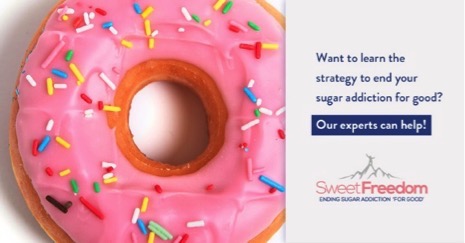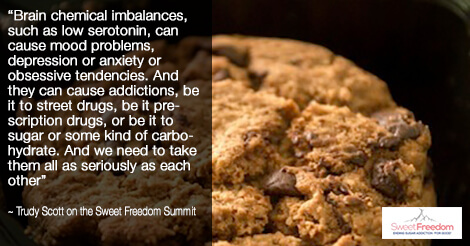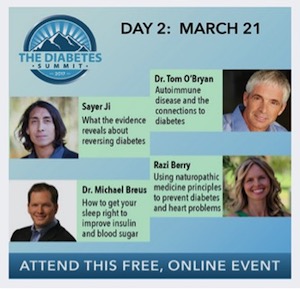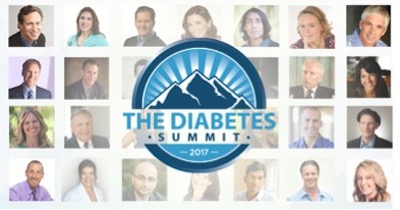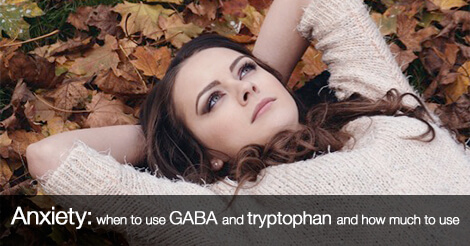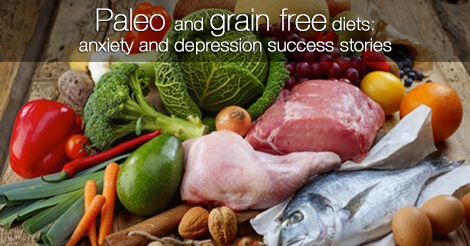
I recently reached out to my community to hear your diet-depression or diet-anxiety success stories in anticipation of the new SMILES diet depression trial, published last month and which I covered in a blog post last week. In that post I promised to share some real-life success stories on how an anti-inflammatory and anti-anxiety diet i.e. nutritional psychiatry people’s lives for the better!
I also shared that everyone who responded with success stories was following a more “evolved” diet than those who participated in the SMILES trial, the first randomized controlled diet depression study where ONE THIRD of the dietary intervention group saw improvements in their depression symptoms by switching from processed/junk food to real food with no specific dietary restrictions!
What do I mean by a more evolved diet? Each of them was eating a real foods or traditional non-processed diet that was gluten-free, mostly or all grain-free and various permutations of the Paleo or cave-main diet.
The anxiety and depression success stories
Alice from Cape Town shared this about banting, a Paleo-type dietary approach that does include dairy products and has been popularized in South Africa by Professor Tim Noakes:
Three days after I stopped eating grains, my chronic depression lifted and has never returned (it’s three years later now). I had been a vegetarian most of my life, discovered in my early 50s that I was gluten intolerant, went off grains, started banting (Cape Town craze!) and have never felt better. Gut, mood, bones, energy, skin … all better!
Andrea shared this about her diet-mood results, also with a grain-free and high fat diet:
I happened upon a fat loss diet that had me cut out grains, most dairy, and sugar while focusing on mostly meat, fish, fats from nature such as butter, olive, and coconut oils. Nuts, seeds, and legumes were allowed too. These rules made it so I had to avoid processed foods. There was one day a week of eating anything.
Within 6 weeks I was shocked that I got much much more than fat loss. My depression, anxiety, mood swings, sleep issues and all but one pesky health symptom was left disappeared. I was stronger, faster, and felt energy I never remember having.
Holly shared how she healed severe depression and anxiety by changing her diet:
Over the course of a year and a half, I was given 10 different psychiatric diagnoses and cycled through 10 different medications. I discovered the healing power of diet completely by accident, and it changed my life. I now live with no diagnoses and no symptoms.
I started with the Whole30 (strict paleo), then went paleo, dabbled with a ketogenic approach, and now I eat a modified paleo diet, with some rice and goat dairy.
Krysti shared how diet reduced her severe mood swings and panic attacks:
I was dx with bipolar at 18 years old. Suffered panic attacks and the random severe mood swings that made absolutely no sense. I was sad for days to weeks only to be followed with unrealistic overly-exuberant highs where I had the energy of a toddler on sugar and the signature grandiose thoughts that I could simultaneously fly and conquer the world and do all the things! For a day. Then the next day felt numb. And resorted back to “cutting” just to feel something. I never cut for attention. In fact not even my closest friends knew I did it. It was for me and I hid it.
…my oldest sister introduced me to Paleo. I was soon dx celiac, cut out grains and have been med and *mostly* mood swing/manic free ever since. No panic attacks. I have never felt more emotionally stable. Even through the death of my youngest sister and big life events, my emotions have been that of a normal person. Explicable. Expected. Level. No extremes.
You can read their entire inspiring diet-depression stories and other ones in the comments on this blog.
Thanks to Alice, Andrea, Holly and Krysti for sharing your wonderful and very hopeful stories! It warms my heart and I know it inspires my community!
And here is my story again:
For me it was anxiety and panic attacks that resolved when I made dietary and other nutritional and lifestyle changes. I had been eating a vegetarian diet for a few years and I suspect the non-organic/GMO processed soy products (soy milk, soy yogurt, soy “butter” etc) were a big issue for me and damaged my gut. When I added back quality animal protein (grass-fed red meat, wild fish, pastured eggs and chicken), switched to organic produce, added healthy fats and removed gluten my mood improved dramatically. Now I eat a combination of a Paleo/SCD /low FODMAPS/low oxalate diet.
During the severe anxiety and panic attacks I also needed additional support in the way of the targeted amino acids GABA (this was a life-saver and stopped the panic attacks in a few days) and tryptophan, plus zinc, vitamin B6, evening primrose oil, a good multi and B complex and adrenal support. I still continue with some of these basic nutrients today.
My health issues have been complex as I’ve also had to deal with heavy metals, poor gut health and much more so I had what I call “a perfect storm” and yet diet has had such a huge impact for me!
Getting off medications
Lead researcher Professor Felice Jacka was quoted in an ABC article saying this in response to the SMILES trial:
people suffering from depression should not replace therapy and drug treatments with the Mediterranean diet.
Based on my experience working with clients and feedback I receive on the blog, finding the ideal diet and addressing all nutritional deficiencies often allows my clients to work with their doctors on eliminating all their depression and antianxiety medications. Other medications also go by the wayside: pain meds, high blood pressure meds, allergy meds, reflux meds etc.
What is Paleo?
I had the pleasure of hearing Australian Chef Pete Evans at an all-day Sydney event earlier this year, in celebration of the launch of his new book The Complete Gut Health Cookbook, with co-author Dr. Helen Padarin. He is a big time Paleo advocate and this is what he said on stage at the start of his presentation and wonderful day of cooking demos:
Paleo is basically a meat and 3 vegetables – it’s that simple!
To expand on this a bit…this means quality animal proteins like grass-fed red meat, wild fish, pastured eggs and chickens, organic vegetables (typically lower carb) and fruit, soaked nuts (if tolerated), bone broths, fermented vegetables and broths, and health fats like coconut and avocado. Many in the Paleo community say no to dairy and butter but I do find that some of my clients do fine with small amounts and some people do better with fermented dairy like kefir and yogurt or goat/sheep and even camel milk rather than cow’s milk.
I also got to meet both Pete and Helen at the book signing – they are both wonderful and very down-to-earth!

Can you imagine my surprise when Pete invited me on to stage to welcome me to Australia and share a bit about my work with diet and anxiety!?
Here is a 5 minute clip of me on stage with Pete and Helen where we talk about:
- How what we eat has a direct impact on our brains and how we feel
- How our gut bacteria make some of our brain chemicals like serotonin and GABA when we consume fermented foods [and other foods rich in amino acids and organic produce]
- The term “psychobiotics” coined by Dr. Ted Dinan ie. good bacteria that improve our mood
- Kelly Brogan’s wonderful work around depression and diet and medication tapering, and her great book A Mind of Your Own
- How quickly can diet lead to anxiety and depression symptoms improving and allowing you to get off medications? …biochemical individuality, diet alone, addressing gut health, adding fermented foods, addressing low zinc and other root causes, looking at gene defects
- Real food, liver, rooibos tea, herbs
- My story of anxiety and panic attacks and changing from a vegetarian diet to a modified Paleo diet
- The Anxiety Summit and my book The Antianxiety Food Solution as resources
As you’ve read with these success stories and heard me say on Pete’s stage, many people can do it with diet alone (even if their anxiety is very severe), many need additional nutritional support, and many need the targeted individual amino acids to get immediate relief from their anxiety or depression while they are looking for all their root causes. Many also need the amino acids to break their gluten and sugar addictions. But making the dietary changes are the foundation!
Stay tuned for more about Pete Evans, some of his recipes and gut healing protocols and the unfortunate grilling he’s been getting in the Australian media for advocating a Paleo diet! In the meantime, I will say that all his books come highly recommended!
In case you’re wondering about the research on the Paleo diet, while we don’t have a study that’s looking directly at anxiety and depression, we do have these papers on the overall benefits of a Paleolithic diet:
- January 2017: Benefits of a Paleolithic diet with and without supervised exercise on fat mass, insulin sensitivity, and glycemic control: a randomized controlled trial in individuals with type 2 diabetes
- June 2016: Paleolithic and Mediterranean Diet Pattern Scores Are Inversely Associated with Biomarkers of Inflammation and Oxidative Balance in Adults
- January 2016: Cutting through the Paleo hype: The evidence for the Palaeolithic diet
And in this paper co-authored by Professor Felice Jacka – Nutritional psychiatry research: an emerging discipline and its intersection with global urbanization, environmental challenges and the evolutionary mismatch, they mention
a potential evolutionary mismatch between our ancestral past (Paleolithic, Neolithic) and the contemporary nutritional environment.
We do, of course, have many studies supporting a diet-mood connection:
- Anxiety and Hypoglycemia Symptoms Improve with Diet Modification
- Western diet is associated with a smaller left hippocampus and anxiety
- Integrative Medicine Approach to Pediatric Obsessive-Compulsive Disorder and Anxiety
- Reduced anxiety in forensic inpatients – long-term intervention with Atlantic salmon
And Professor Felice Jacka shared this during our interview on The Anxiety Summit: The Research – Food to prevent and treat anxiety and depression?
One of the hypotheses that I had during the Ph.D. was that increased intake of animal foods would be toxic and would be associated with more mental disorders.
This did not turn out to be the case: In our study, out of every single dietary food grouping that I looked at including vegetables, fruits, salads, beans, etc the strongest correlate of mental health was red meat intake [grass-fed red meat of course.]
Consistently, women who have less than the recommended intake of red meat seem to be in an increased risk for common mental disorders [like anxiety and depression] and bipolar disorder.
She was referring to the results of her Ph.D. paper that was published in the American Journal of Psychiatry in 2010: “Association of Western and Traditional Diets with Depression and Anxiety in Women.”
Have you changed your diet to a Paleo way of eating and observed a reduction or elimination of anxiety or depression? Was a dietary change enough or did you need to address brain chemical imbalances and other nutritional deficiencies too?
If you’re a practitioner, have you seen results like this with your clients or patients?
 TRUDY SCOTT, CN: Understanding Anxiety: The Connection to Diabetes
TRUDY SCOTT, CN: Understanding Anxiety: The Connection to Diabetes RAZI BERRY: Using Naturopathic Principles to Prevent Diabetes
RAZI BERRY: Using Naturopathic Principles to Prevent Diabetes ANNA CABECA, DO: Creating Hormone Balance to Optimize Metabolic Health
ANNA CABECA, DO: Creating Hormone Balance to Optimize Metabolic Health TOM O’BRYAN: Autoimmune Disease and the Connection To Diabetes
TOM O’BRYAN: Autoimmune Disease and the Connection To Diabetes SAYER JI: What the Evidence Reveals About Reversing Diabetes
SAYER JI: What the Evidence Reveals About Reversing Diabetes BJ HARDICK: Sugar, Detox, and The Brain: Natural Strategies For Healing
BJ HARDICK: Sugar, Detox, and The Brain: Natural Strategies For Healing SACHIN PATEL: A New Model for Medicine, Diabetes, and Blood Sugar Health
SACHIN PATEL: A New Model for Medicine, Diabetes, and Blood Sugar Health NIKI GRATRIX: The Mind-Body Connection to Metabolic Health
NIKI GRATRIX: The Mind-Body Connection to Metabolic Health PETER OSBORNE: The Autoimmune Connection to Blood Sugar and Diabetes
PETER OSBORNE: The Autoimmune Connection to Blood Sugar and Diabetes MICHAEL MURRAY, ND: The Four Types of Blood Sugar Problems in Diabetes
MICHAEL MURRAY, ND: The Four Types of Blood Sugar Problems in Diabetes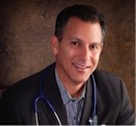 JOEL KAHN, MD: A Plant-Based Approach to Heart Health and Blood Sugar Health
JOEL KAHN, MD: A Plant-Based Approach to Heart Health and Blood Sugar Health 
